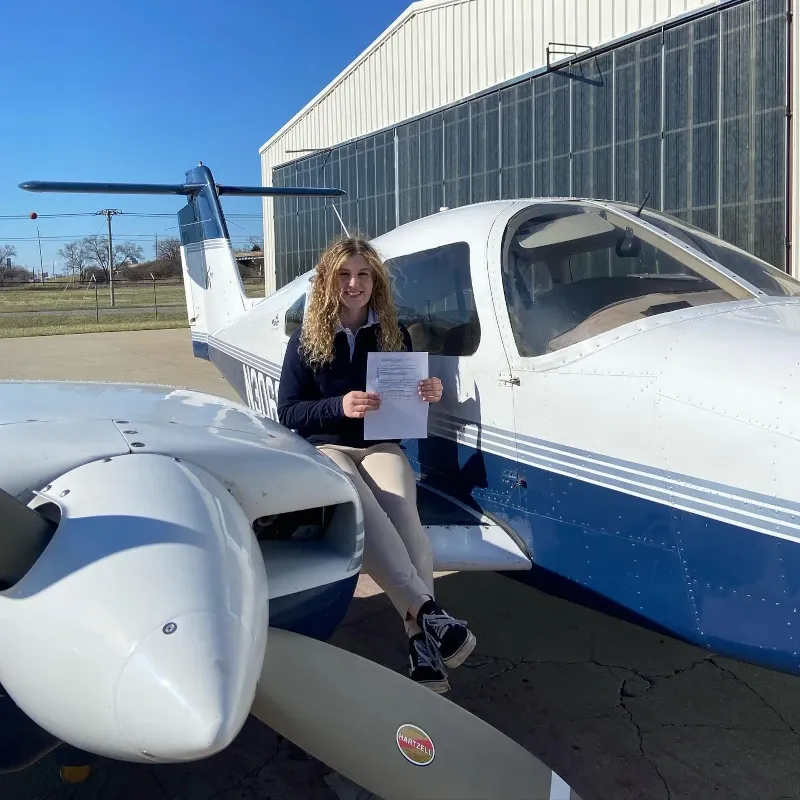
Why Do Flight Simulators Matter?
Flight simulators are critical tools in pilot training, particularly in regions bustling with aviation activity, like St. Louis, Missouri. Their significance in the educational journey of a pilot cannot be overstated, offering a multi-faceted approach to mastering the skies.
Cost-Effective Skill Building
Flight simulators represent a cornerstone in the realm of flight training, providing an economically viable option for aspirants to develop their flying prowess. The financial aspect of pilot training is a considerable one, with costs accruing from actual flight hours, aircraft maintenance, and fuel consumption. Simulators, however, mitigate these expenses significantly.
By replicating real-life flying conditions without the need to leave the ground, simulators allow trainees to undergo extensive training sessions. They can repeatedly practice maneuvers, understand aircraft systems, and manage in-flight emergencies without the clock ticking on costly flight hours. This method not only saves money but also accelerates the learning curve, allowing trainees to progress at a faster pace than traditional flight training methods might permit.
Advanced Training Facilities
Institutions like Egnatia Aviation have set the bar high with their cutting-edge simulator facilities. These establishments offer a glimpse into the future of aviation training, where technology bridges the gap between theoretical knowledge and practical application. For students seeking flight training near St. Louis, Missouri, access to such advanced simulation technology is a significant advantage.
The simulators in these facilities are often equipped with the latest software and hardware, closely mirroring the cockpit and controls of actual aircraft. This technology exposes trainees to a wide array of scenarios, from standard flight operations to rare and complex emergency situations. Such broad exposure ensures that students are not only familiar with the aircraft but are also adaptable and confident in handling a variety of flight conditions.
Realistic Flying Experience
One of the most compelling aspects of flight simulators is their ability to offer an incredibly realistic flying experience. This realism is crucial for trainees to gain a deep understanding of flight dynamics and aircraft response under different conditions. Whether it’s navigating through turbulent weather, dealing with system failures, or executing precise maneuvers, simulators provide a safe and controlled environment for intensive learning.
This experience is invaluable, particularly in preparing students for the unpredictability of real-world flying. By simulating challenging scenarios, students can practice their response to high-pressure situations, ensuring they are well-prepared when they face similar conditions in actual flight. Furthermore, the ability to reset and retry scenarios in the simulator allows for learning from mistakes without real-world consequences, enhancing the educational value of each session.
Enhanced Learning Outcomes
The benefits of simulator training extend beyond the technical skills of flying an aircraft. They also play a significant role in developing the pilot’s soft skills, such as critical thinking, problem-solving, and stress management. These skills are essential in the fast-paced and often unpredictable field of aviation, where decisions must be made swiftly and effectively.
The controlled environment of a simulator allows for the deliberate practice of these soft skills, enabling trainees to experience and manage the psychological and emotional aspects of flying. Such training leads to the formation of pilots who are not only proficient in handling their aircraft but also in managing the broader spectrum of challenges that come with piloting.
Simulator training, with its blend of technical and soft skill development, produces pilots who are more competent and confident. These pilots are better equipped to navigate the complexities of modern aviation, making them valuable assets in the cockpit.
Check Out Ideal Aviation!
In conclusion, the importance of flight simulators in the realm of flight training is immense. They offer a cost-effective, safe, and applicable method for aspiring pilots to learn and perfect their craft. Advanced training facilities, realistic flying experiences, and the enhancement of both hard and soft skills are just some of the ways simulators contribute to the making of adept pilots. For those in St. Louis, Missouri, and beyond, leveraging the power of flight simulation is a step toward achieving excellence in aviation.
For aspiring pilots near the Downtown St. Louis Airport or anyone interested in state-of-the-art flight training, Ideal Aviation provides access to advanced flight simulators and custom training programs. Get in touch with us to start your journey in aviation with the best resources at your disposal. Let’s elevate your flying skills to new heights!